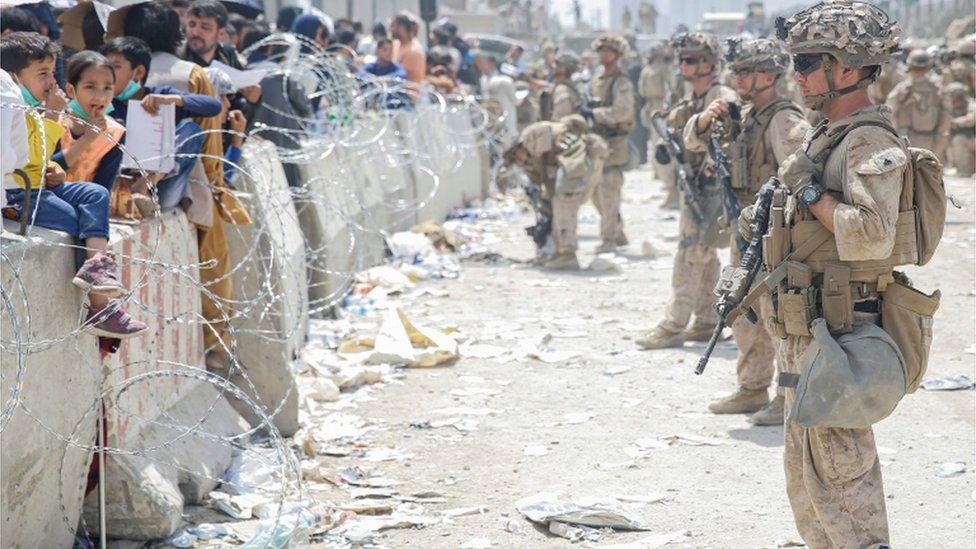Afghanistan: Veterans group sees sharp rise in counselling requests
- Published
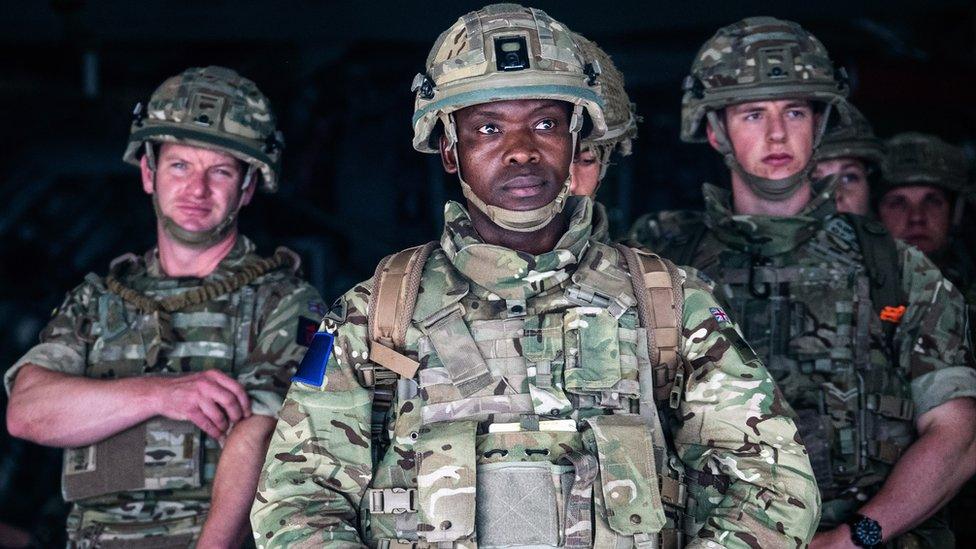
UK troops are due to leave Afghanistan for the final time when US forces withdraw from the country
A veterans support organisation has seen a sharp rise in people asking for help since the Taliban seized control of Afghanistan, its founder has said.
Craig Monaghan said Salford's Spearhead Foundation would have needed to provide five times more counselling sessions than usual to meet the demand since the militants took Kabul on 16 August.
The ex-soldier set up the organisation to help other veterans access support.
He said in the past week, it had been hard to choose who could get a session.
"It has been such a hard thing to decipher who gets counselling and who does not," the 31-year-old said.
He told BBC Radio Manchester he set up the foundation after ten of his friends died in Afghanistan and a further 12 took their own lives after they returned home.
He was also seriously hurt in an explosion and suffered physical and mental injuries which have yet to fully heal.
'Heartbreaking'
The Eccles-based organisation usually provides 120 counselling sessions in a week, but Mr Monaghan said it had received more than 500 requests for help in the past seven days.
He said almost everyone involved with the foundation had served in either Iraq or Afghanistan and watching the events of the past few weeks unfold had been "a tough pill to swallow".
He said he believed it had always been "inevitable" that the Taliban would take control of the country again when US and UK troops left, but the events of the past week were "heartbreaking".
"[The locals] don't deserve what's going on... because it's our fault," he said.
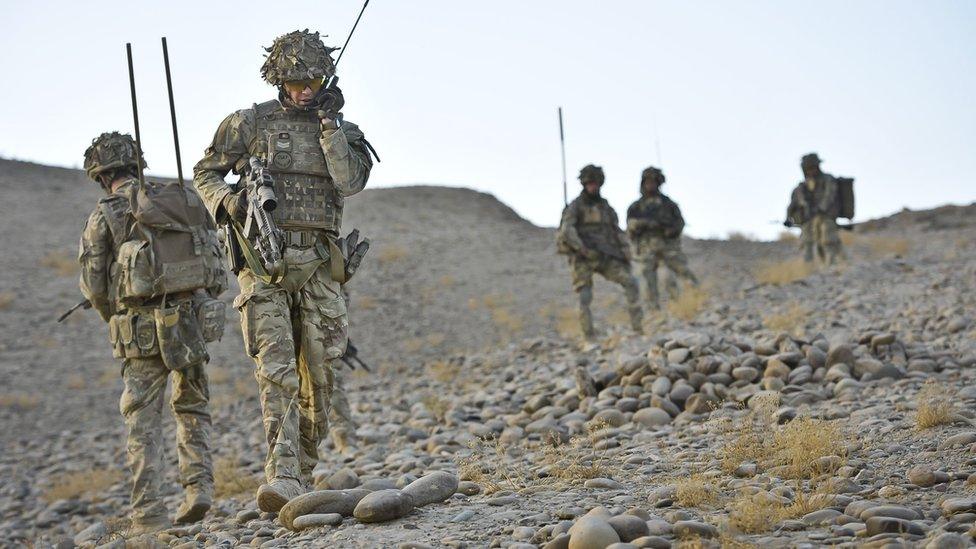
Thousands of members of the British armed forces have served in Afghanistan in the past two decades
Earlier, Defence Secretary Ben Wallace said the UK's troops would leave Kabul's airport when the US withdrew, which is due to happen on 31 August.
Mr Monaghan said the former soldiers who he was in contact with had initially felt anger about what had happened, but now a sense of loss was "sinking in".
"Everyone's trying to pick each other up.
"We're sad at the minute, but eventually it'll get better and we just need to find out how it's going to get better."
He added that he believed the cost of the conflict on those who had served had "got to be worth it".
"My personal losses, physical and mental... it shattered many things that people wouldn't even see as a casualty of that war.
"So from a personal point, it has to be worth it, because I've sacrificed too much."

Why not follow BBC North West on Facebook, external, Twitter, external and Instagram, external? You can also send story ideas to northwest.newsonline@bbc.co.uk
Related topics
- Published23 August 2021
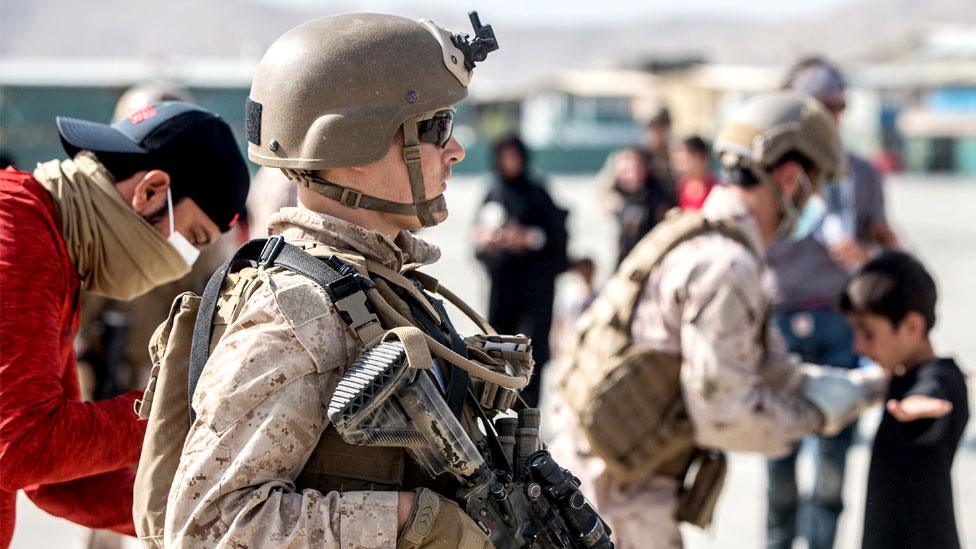
- Published22 August 2021
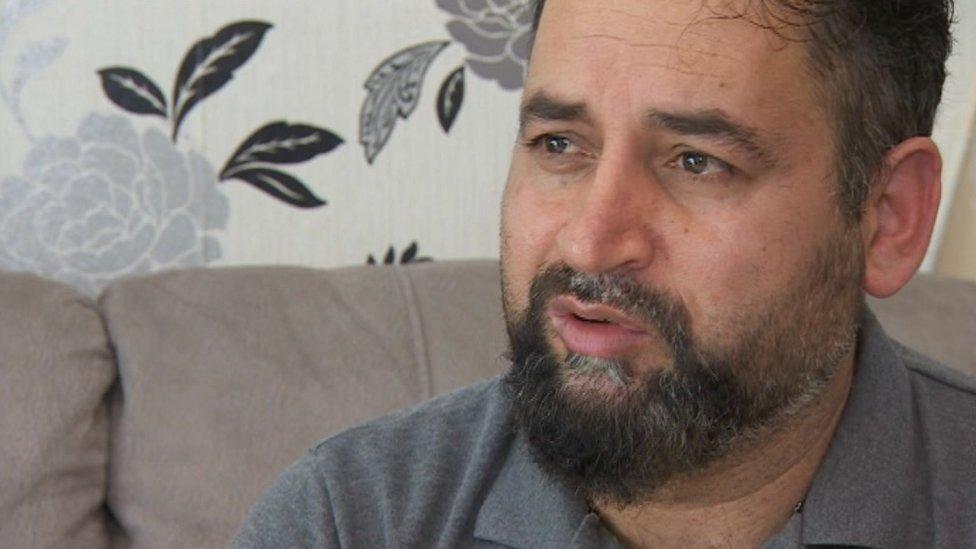
- Published22 August 2021
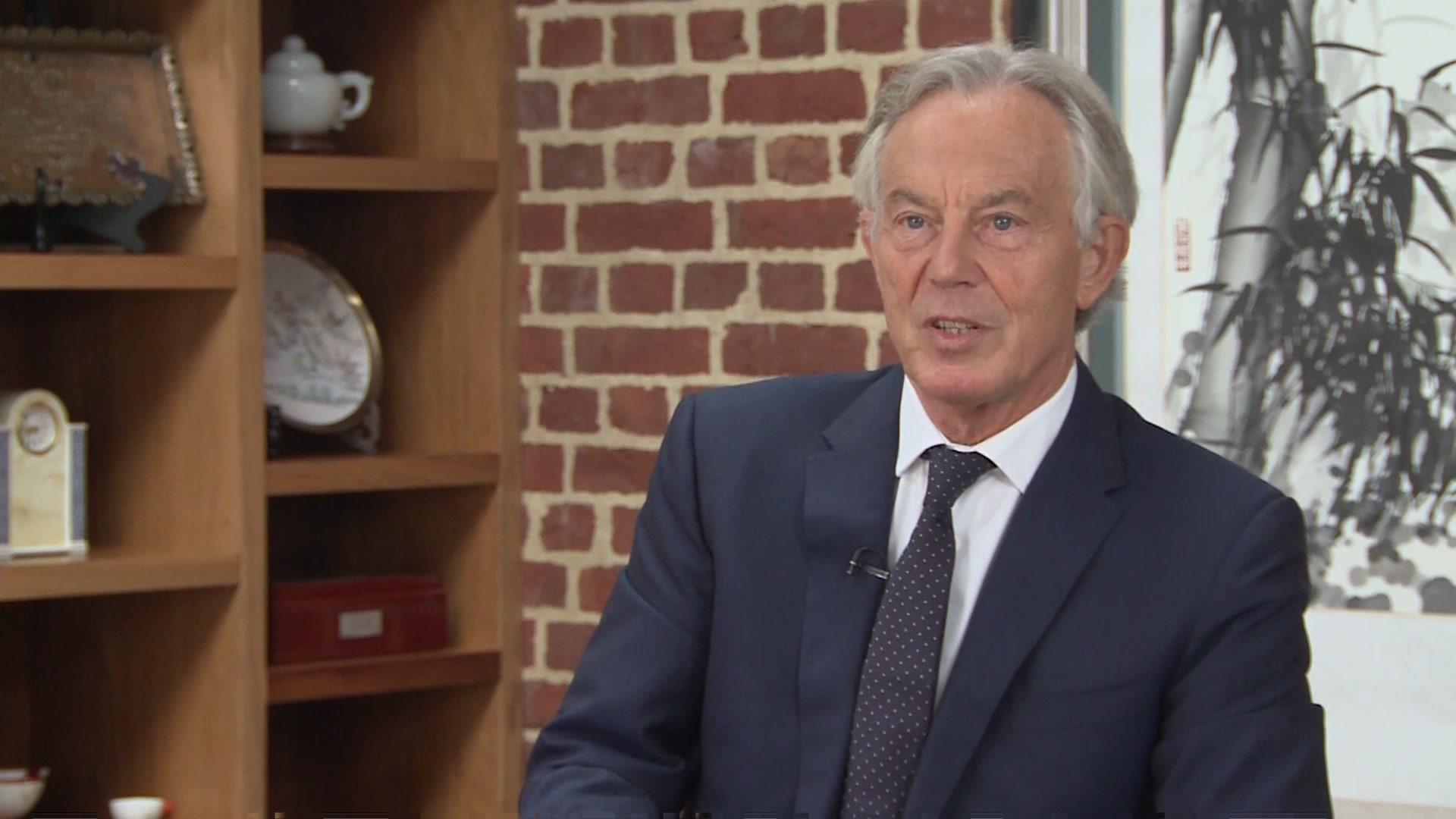
- Published22 August 2021
